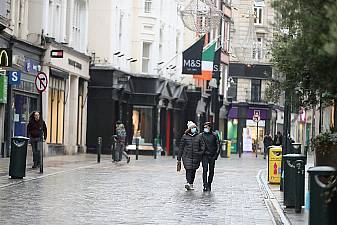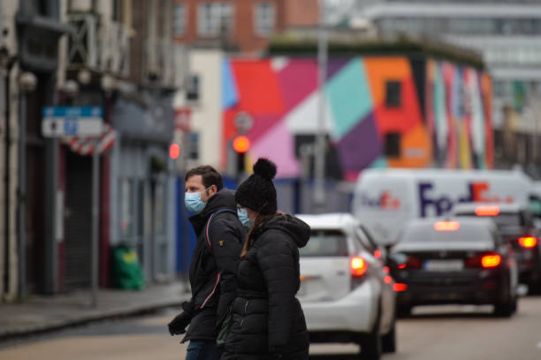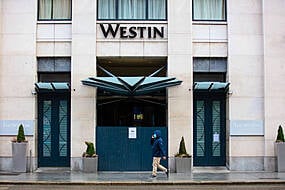There has been confusion over the difference between the instructions to self-isolate, quarantine and restrict your movements.
The Health Minister and the Tánaiste seemed to contradict each other on what people should do if they have to quarantine in shared accommodation.
Stephen Donnelly has said anyone who arrives from a foreign country and living in shared accommodation needs to self-isolate in their room.
The Tánaiste, Leo Varadkar meanwhile said it is okay to socialise with housemates in those situations.
Mr Varadkar said those arriving from low-risk countries are treated like close contacts: “At the moment if you are somebody who has actually tested positive you are required to self-isolate. If you are a close contact, you are required to restrict your movements."
So who is required to self-isolate?
Currently, anyone who has symptoms of Covid-19 or are waiting for a test appointment or test results should self-isolate.
When it comes to people who are coming into Ireland, those arriving from Great Britain, South Africa and Brazil are required to self-isolate for 14 days.
Furthermore, if you are a close contact of someone who arrived in Ireland from Brazil or South Africa who tested positive for Covid-19, you are required to self-isolate.
Self-isolation means staying indoors and completely avoiding contact with other people. This includes those you live with.
If you live with other people, you are asked stay in your own room with a window you can open, if possible. You should also ask other people to go to the shop or pharmacy.
Who is required to quarantine?
Quarantine can sometimes be used interchangeably with restricting your movements, in this case though it applies to those coming into Ireland from abroad.
Put simply, quarantine is a strict isolation imposed to prevent the spread of a disease. It involves a person separating themselves from others if they have been or may have been exposed to Covid-19.
The Government has said a range of mandatory quarantine measures will be introduced, applying to all international arrivals.
Mandatory quarantine at a designated facility will be required for passengers who arrive in breach of the pre-departure negative/'not detected' PCR requirement.
People will be forced to quarantine if they arrive into Ireland from Brazil and South Africa. In other cases, passengers will be required by law to quarantine at home.
Application of these measures to passengers who are not EU/EEA citizens can be introduced by regulations.
The Government is currently in the process of creating new legislation to enforce mandatory hotel quarantine for those coming into the Republic from Brazil and South Africa.
Even though getting the legislation through the Dáil is seen as a priority by the Government, it will still take some time before it is fully passed through the Oireachtas.
Who is required to restrict their movements?
According to the HSE, restricting your movements means staying at home as much as possible to avoid contact with other people.
You are advised to restrict your movements if you are a close contact of a confirmed case of Covid-19, if you live with someone who has symptoms of Covid-19 but you feel well. Also, if you arrive in Ireland from another country, unless you are coming from a green region or Northern Ireland.
The HSE said in order to restrict your movements you should avoid social situations and contact with other people as much as you can. Stay at home or in your accommodation as much as possible.
You can still go outside to exercise by yourself as long as you keep 2 metres away from other people.
There are a number of things you are asked not to do. These include:
- not going to work, unless you work on your own and can completely avoid other people.
- not going to school or college,
- not using public transport,
- not having visitors at your home
- and not visiting others, even if you usually care for them.
People are also asked not to go the shops or pharmacy - where possible - and to order your groceries online or have some family or friends drop them off.
Finally, people are asked not to go to gatherings such as weddings or funeral and do not meet face-to-face with older people, anyone with a long-term medical condition or pregnant women.
When are you allowed to stop restricting your movements?

The HSE says if you are a close contact of a person that tested positive for Covid-19 you should restrict your movements for 14 days.
Do this from the last date you were in contact with that person. If you are not sure when that was, restrict your movements until the date you were told by contact tracing.
You should continue to restrict your movements even if your test comes back negative.
This is because it can take up to 14 days for the virus to show up in your system after you have been exposed to it.







